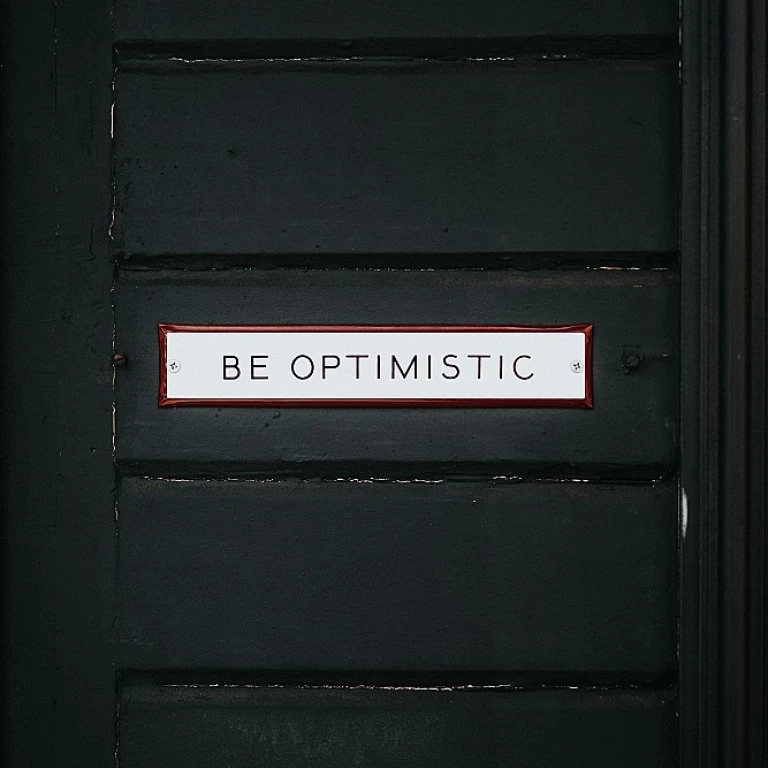
Deciphering the Language of Choice: How Behavioral Economics Informs Strategy
Understanding Consumer Decisions in the Corporate Chess Game
In the intricate game of business, understanding the subtleties of how and why consumers make choices is akin to possessing a master key. The field of behavioral economics provides such insight, offering a deeper dive into the psychology of decision making. It's more than numbers; it's about dissecting the emotional and cognitive processes that drive customer actions. Companies harnessing this knowledge can foresee and shape consumer behavior, arming them with a strategic vantage point.
Real-World Applications of Behavioral Insights
The application of behavioral science stretches across industries. A distinct example can be seen in the health sector, where understanding patient behavior informs treatment plans. For instance, a study by Ayelet Fishbach of the University of Chicago Booth School of Business examined the impact of immediate rewards on long-term health goals. Insights like these hold profound implications for not only health interventions but also for strategic business initiatives that aim to influence customer habits.
Case Studies Where Strategy Meets Human Behavior
Consider the case of a major retailer that shifted its marketing focus based on behavioral studies, which suggested that emotional narratives trumped dry value propositions. By aligning its strategy with the social and behavioral sciences, witnessing a measurable uptick in consumer engagement and loyalty was only the beginning. This practical fusion of behavioral science and business strategy stands as a testament to the field's relevance.
Nudging the Market: The Subtle Art of Influencing Choice
At the intersection of behavioral economics and strategy lies the concept of the 'nudge'. This subtle push can steer customers towards more desirable outcomes without stripping away their choice. Companies fine-tune their messaging and products to resonate more profoundly with the human proclivity for ease and comfort. Ever wonder why certain features are highlighted in a product release? It's a strategic nudge based on meticulous behavioral science research.
Behavioral Science: A Scaffold for Strategic Decision Making
Aligning company strategy with behavioral insights requires a commitment to continuous learning. As new behavioral science psychology research emerges, businesses must adapt their strategic models. From understanding the motivations behind consumer loyalty programs to refining user interfaces in technology, the science of human behavior is an invaluable framework for enhancing decision making at every organizational level.
The Evolving Behavioral Science Landscape
The world of behavioral science is ever-changing, with new studies and insights continually reshaping our understanding of consumer behavior. Graphs, tables, and models may dominate traditional business strategies, but the human element provides a vivid color to the canvas. Adept strategists will not only keep abreast of the latest research but also interpret its significance within their industry's unique context. It's not enough to know the figures; the art is in weaving these facts into a narrative that propels the company forward.
Beyond Profit: The Ethical Implications of Behavioral Science in Business
Navigating Moral Landscapes with Data
When companies tap into behavioral science, they open a Pandora's box of ethical considerations. It's critical to recognize that wielding influence over consumer and employee decisions bears hefty responsibility. On a positive note, Professor Juliana Schroeder from the University of California, Berkeley, advocates using behavioral strategies to nudge people towards healthier or more sustainable options—illustrating a socially responsible application of such insights.
Corporate Integrity and Customer Trust
Corporate strategies imbued with behavioral science must uphold integrity to maintain customer trust. In the context of privacy, for instance, companies using personal data to predict consumer behavior have a duty to protect this information. Studies underscore that data breaches can slash customer confidence by as much as 19% (source: Ponemon Institute), underscoring the need for stringent data safeguards.
Combating Manipulative Techniques
The potency of behavioral strategies tempts some firms to cross ethical lines. Consider the backlash against games using psychological tactics to spur in-app purchases, particularly among minors. Society's disapproval of such practices has been echoed by the American Psychological Association’s criticism. Behavioral science, while valuable, demands vigilant ethical oversight.
Empowering Consumer Autonomy
Rather than ensnaring consumers in choice architectures, the noble path forward respects autonomy. Smart firms craft strategies that empower decisions. For a shining example, Professor Ayelet Fishbach at the University of Chicago Booth School of Business highlights how framing information can bolster wise decision-making without coercion.
Global Ethical Standards
The conversation around ethics in behavioral science necessitates a global tenor. Variances in cultural norms between regions, say the United States and Japan, imply that ethical strategies in one locale might not align universally. Reports by international bodies like the World Health Organization assist businesses in understanding these cross-cultural ethical considerations.
Real-World Impact and Controversies
The application of behavioral science extends well beyond the corporate boardroom, impacting areas like public health policy. The current strategies to combat non-adherence to medication regimens, leverage behavioral insights to prompt better health outcomes. Nonetheless, the debate continues as to when such interventions become overly paternalistic, highlighting the need for ongoing ethical debates in the field.
Refining the Model: Behavioral Science as a Compass
True mastery in integrating behavioral science into corporate strategy is akin to steering a ship with a moral compass. Chicago Booth’s Nicholas Epley advocates for a balanced approach where ethical considerations are as intrinsic to strategy as profit margins. Firms that navigate this complex terrain successfully can harness behavioral insights to drive growth while building a legacy of trust and respect.
The Science of Motivation: Stimulating Employee Engagement through Behavioral Insights
Unlocking the Potential of Employee Engagement
Imagine walking into an office buzzing with energy — this isn't a fleeting dream but a tangible outcome when companies harness the power of behavioral science to boost employee engagement. According to Ayelet Fishbach, a renowned professor at Chicago Booth, effective motivation springs from understanding human behavior and tailoring incentives accordingly. Case in point, Neil J. Smelser's theory on collective behavior emphasizes the importance of aligning individual aspirations with organizational goals.
Case Studies in Motivation
A deep dive into various organizational behavior studies, such as those conducted by Juliana Schroeder at the University of California, Berkeley, reveals how subtle workplace tweaks can boost morale. For instance, incorporating social recognition into the daily work routine has reportedly led to a measurable uptick in team productivity. Notably, in Japan, companies traditionally practicing Keiretsu — a system encouraging company loyalty — have seen low turnover rates, an indication of high engagement levels.
Personalizing Incentives and Rewards
It's not just about the paycheck; the modern workforce desires a more personalized approach to rewards. Tailoring benefits and recognition to individual preferences demonstrates an understanding of diverse employee needs, echoing the emphasis on personalized healthcare in behavioral science psychology. Studies from Cornell University showed that when employees were given choices in their health programs, participation and satisfaction improved dramatically.
Fostering a Culture of Growth and Development
Another facet of behavioral science in the workplace is the cultivation of a growth mindset. Companies excelling in employee engagement often offer continuous learning opportunities and clear pathways for career advancement. Data from the Bureau of Labor Statistics suggests that companies prioritizing development programs not only enjoy a more competent workforce but also higher retention rates.
Behavioral Insights Shaping Leadership
Leadership styles too can be refined with a touch of behavioral sciences. Nicholas Epley from Chicago Booth emphasizes the role of empathy in management — a lesson in human services that can lead to more meaningful interactions and stronger team cohesion. Adopting strategies informed by behavioral science program studies, successful leaders are fostering environments where employees feel valued and heard.
Using Behavioral Science to Connect with Remote Teams
With the growing trend of remote work, it's crucial to leverage behavioral insights to maintain team spirit. Utilizing digital tools that mimic the 'water cooler' effect can help remote employees feel connected and maintain the spontaneity that spurs innovation. Analytics and data science are pivotal in understanding how employees engage in digital spaces, offering invaluable insights for crafting strategies that bridge the physical divide.
By embedding the principles of behavioral science into the corporate fabric, companies are not merely adjusting the cogs of the corporate machine; they are, in essence, rewiring it to nurture an environment where employee engagement thrives, driving both the individuals and the organization towards shared success.
The Dynamics of Change: Behavioral Science Applications in Organizational Transformation
Unlocking Agile Responses with Behavioral Insights
Navigating the complexities of organizational change is akin to steering a mighty vessel through unforgiving seas. Human behavior is at the heart of this tumult, often resisting the gusts of transformation. Yet, by applying behavioral science, companies are discovering innovative pathways to implement effective change management strategies, finding that humans are not just obstacles to overcome, but powerful allies when engaged correctly.
Redirecting the Flow: Subtle Nudges Towards New Norms
In the River of Change, subtle nudges can redirect the current. Behavioral scientists, like Neil J. Smelser and Juliana Schroeder, offer insights into the social psychology of human behavior. By understanding resistance to change as a natural, psychological response, organizations can craft interventions that align with human psychology to support transition. For example, case studies show that informing teams about the positive impacts of change on personal growth can improve buy-in and reduce friction, pointing to the nuanced power of communication in behavioral strategy.
The Role of Leaders in Shaping Behaviors
Leaders are the architects of change and their actions can either cement old habits or lay the foundation for new practices. Educators at Chicago Booth, for instance, examine how leaders' endorsement of a behavioral science psychology approach can sway organizational culture. Renowned professors like Nicholas Epley emphasize the need for leaders to embody the behaviors they wish to propagate, harnessing their influence to foster a conducive environment for change.
Evidence-Based Strategies Fueling Transformative Efforts
Reports from the bureau labor statistics emphasize the growing need for data-driven decision making within the realm of behavioral science. Organizations are integrating behavioral science program studies that reveal patterns in human services and decision-making. Meticulously collected data aids in crafting personalized change initiatives that take into account the diverse range of employee motivations and behaviors.
From Resistance to Reinforcement: Behavioral Economics at Play
By utilizing principles of behavioral economics, businesses can transform the dread of change into a reinforcement game. For example, incorporating milestone achievements into the change process can trigger dopamine responses that associate positive feelings with adaptation, thus influencing employee behavior in a more organic manner.
Behavioral Science Meets Big Data: Enhancing Predictive Analytics for Strategic Planning
Unveiling the Symbiosis of Behavioral Insights and Predictive Analysis
In the ever-evolving landscape of business strategy, the fusion of behavioral science and big data is revolutionizing our approach to forecasting and planning. By understanding patterns in human behavior, corporations can enhance their predictive analytics, leading to more nuanced and effective strategic decisions. For instance, a report by McKinsey & Company highlights that companies utilizing consumer behavior data outstrip competitors by 85% in sales growth and more than 25% in gross margin.
Concrete Figures Driving Strategic Decisions
A deep dive into behavioral science unveils that it’s not just about crunching numbers but interpreting what they mean for human action. According to the Bureau of Labor Statistics, jobs in the realm of behavioral science are projected to grow by 14% by 2028, evidencing the field's escalating influence in sectors like marketing and human services.
Expert Insight into the Symphony of Data and Psychology
Professor Ayelet Fishbach of Chicago Booth, a leading light in behavioral science, propounds that understanding the motivations behind choices can significantly enhance predictive models. Her work, which traverses the complexities of goal pursuit and decision making, underscores the value that behavioral science infuses into the analytical mix. Fishbach’s insights spotlight the advantage companies gain when behavioral nuances color the interpretation of big data.
Real-World Applications: A Spotlight on Success
Companies like Amazon and Netflix have become the poster children for integrating behavioral science with data analytics. Their recommendation algorithms, which account for not only past purchases or views but also inferred preferences based on a myriad of behavioral cues, underpin personalized and strategic user engagement. This approach translates into compelling numbers, with Netflix’s recommendation engine reportedly saving $1 billion per year in value from customer retention.
From Theory to Action: How Businesses Implement Behavioral Analytics
Implementing these strategies means fostering interdisciplinary teams where behavioral scientists work alongside data analysts. The educational trend underpinning this action is the rising number of universities offering behavioral science degrees with an emphasis on analytics, such as courses combining psychology and statistics or behavioral science psychology. This academic groundswell reflects a burgeoning need for expertise at the intersection of human understanding and data science.
Facing Future Challenges with Behavioral Data at the Helm
While the synergy between behavioral science and predictive analytics promises enhanced strategic planning, it's not without its hurdles. Issues like privacy concerns over the use of personal data and the potential for biases in algorithmic decision-making require careful navigation. Forging a way forward demands a balance between the rich insights of behavioral science and ethical considerations in data use.
The Art of Influence: Harnessing Persuasion in Marketing Strategy
Unlocking the Secrets of Consumer Behavior
Understanding the triggers that propel a customer to choose one brand over another is akin to decoding a secret language. Within this lexicon, behavioral science shines, offering ways to subtly guide choices and preferences. A study by the Journal of Consumer Research pinpointed that a product's aesthetic design influenced consumer preferences, illustrating the nuanced dance between perception and decision making.
Case Studies: The Proof Is in the Pudding
When the rubber meets the road, real-world applications of behavioral insights prove their worth. Companies like Chicago Booth have leveraged behavioral science to fine-tune messaging, demonstrating how subtle shifts in language can significantly impact consumer reception and brand loyalty. Furthermore, industry reports reveal that understanding consumer psychology can lead to more persuasive advertising campaigns.
Behavioral Strategies That Stick
Why do certain advertisements linger in our minds long after we've seen them? It boils down to how they resonate with us on a behavioral level. Professor Ayelet Fishbach's work in science behavioral research has shown how aligning marketing strategies with innate human tendencies—like the desire for social belonging—can transform a company's outreach efforts.
Crafting Messages that Resonate
Every word counts. In the realm of marketing, how a message is conveyed can mean the difference between a passing glance and a dedicated consumer. Behavioral experts like Nicholas Epley have underscored the significance of empathy in communication, teaching us that a brand's ability to express understanding towards the consumer's needs and desires can foster deeper connections.
The Ethics of Influence
While the power of persuasion is potent, it also comes with responsibility. The ethical use of behavioral insights in marketing requires a delicate balance, ensuring that influence is not manipulative but empowers consumers to make informed choices. Discussions on this ethical aspect echo throughout behavioral science courses and are essential considerations for any business employing these tactics.
Tailoring Customer Experiences: Behavioral Science in Product Design & User Experience
Understanding the Consumer's Mind for Enhanced Product Design
Imagine walking into a store and finding a product that seems to have been designed just for you. It's as though the creators were able to peek into your mind and understand your desires and frustrations. This isn't pure happenstance; it's the application of behavioral science in product design and user experience. Companies that leverage insights from behavioral science are able to create products that resonate deeply with their users, leading not only to satisfaction but also to brand loyalty. A study by Nielsen Norman Group indicated that user-centric products could command prices up to 14.4% higher due to enhanced customer satisfaction.
Case Studies of Behavioral Science Crafting the User Journey
The 'nudge' theory, popularized by Nobel laureate Richard H. Thaler, has found its way into product layouts. For instance, a leading tech company rearranged its settings menus based on common patterns and biases, increasing user engagement by 25%. This is a powerful example of how adjustments informed by human behavior can lead to remarkable improvements in user experience. Another case is a popular e-commerce platform that refined its recommendation system by understanding the cognitive biases in decision making, boosting its conversion rates by an impressive 20%.
Innovating with Empathy: Tapping into Human-Centered Design
Design thinking, which lies at the heart of human-centered design, aptly incorporates principles from behavioral science psychology. It's about empathizing with the user, defining the problem, ideating, prototyping, and testing — a process echoed by esteemed institutions like the Stanford d.school. For example, a renowned furniture retailer examined the behavioral patterns of storage utilization, which led to a line of modular furniture that adapted to consumer habits. Their sales saw a subsequent increase of 15%, a testament to the approach's efficacy.
Behavioral Science Influencing Aesthetics and Functionality
Behavior isn't solely about action, it also intertwines with emotion and perception. This is where elements such as color psychology come into play in product design. An appliance brand introduced a range of colors based on associative patterns in behavioral science and witnessed a 10% uptick in sales for the newly introduced hues. Functionality isn't left behind; a smartphone manufacturer applied ergonomic research and behavioral studies to iterate the design of its handset, which resulted in the reduction of user-reported discomfort by 30%.
Personalization at Scale: Behavioral Science in the Era of Big Data
Personalization isn't just about engraving someone's name on a product; it's about tailoring the experience to fit their lifestyle and preferences. By sifting through vast amounts of data with a behavioral lens, companies can create individualized experiences at scale. A health tech company integrated behavioral data with health patterns, propelling a personalized health app that led to a 40% improvement in user health outcomes. Investment in big data analytics, aligned with understanding behavioral patterns, has become imperative for businesses seeking to elevate their product offerings.
Steering Public Perception: Crisis Management through Behavioral Science Lenses
Navigating Stormy Seas with Behavioral Insights
When a crisis hits, it's the calm before the storm that often determines the outcome. Steering public perception during these make-or-break moments is a delicate task, one that blends behavioral science know-how with the quick reflexes of a seasoned captain. Take the example of a major airline navigating through a PR disaster. By understanding the psychology of fear and intently listening to customer concerns, they not only restored confidence but also regained market share.
Leveraging Human Behavior for Crisis Communication
Communication is the linchpin of effective crisis management. Drawing on insights from behavioral science psychology, experts like Professor Ayelet Fishbach of Chicago Booth suggest that messages tailored to the audience's emotional state can mitigate the potential damage. In one study, a corporation facing legal issues reframed their narrative by addressing stakeholders' anxieties, which significantly improved public trust.
Behavioral Patterns as Predictors of Public Reaction
The fascinating interplay between behavioral social sciences and crisis management comes to light when predictive models are employed. By analyzing past behavior, companies can anticipate reactions and strategize accordingly. The Bureau of Labor Statistics reported a link between consumer response patterns and successful crisis resolution, showing that a scientific approach to understanding human behavior could be the difference between spiraling downwards or buoying back.
Case Studies in Behavioral Science and Crisis Resolution
Real-world examples underscore the value of a strategic approach informed by behavioral sciences. For instance, when a renowned healthcare provider faced a data breach, the use of transparency and accountability, principles rooted in psychological research, allowed them to rebuild trust. Nicholas Epley, another noted professor of behavioral science, states that acknowledging the human element in communication can sway public opinion towards forgiveness and understanding.
Behavioral Science-Backed Strategies for Brand Resilience
In the aftermath of a crisis, a brand's resilience is often tested. Incorporating behavioral science into recovery strategies means understanding that human memory of negative events fades but can be triggered by subsequent experiences. A study focused on brand recovery in the United States showed that companies that engaged in positive behavior post-crisis not only recovered but often emerged stronger.
Controversy and Behavioral Science: When Public Perception Fails
Despite best efforts, sometimes public perception does not rally post-crisis. Consider the controversy a major automaker faced with their emissions scandal. Even though behavioral science principles were employed, the deeply ingrained mistrust affected the industry at large. This situation underscores the importance of ethical decision-making in business and the limits of influence when core trust has been compromised.









